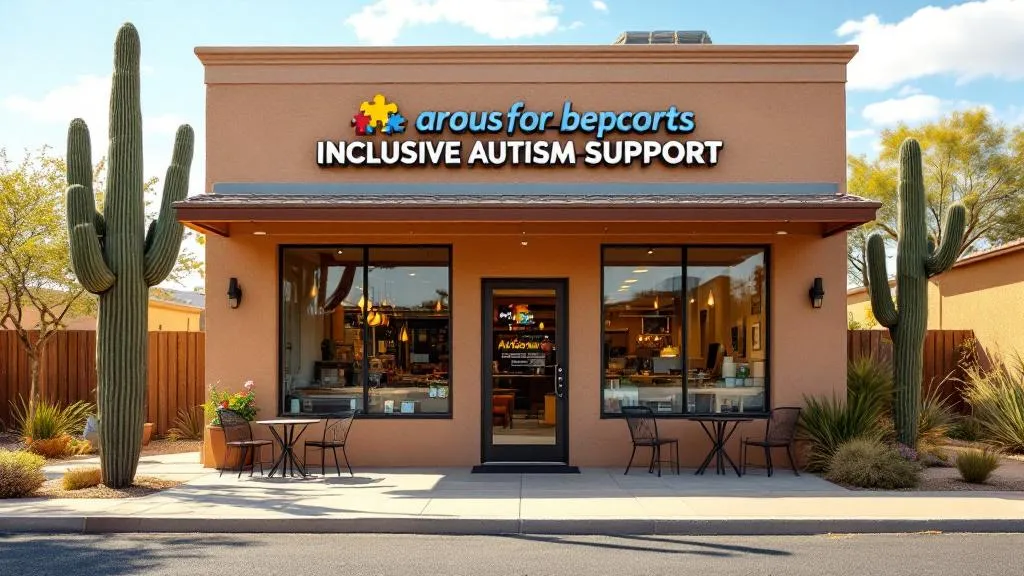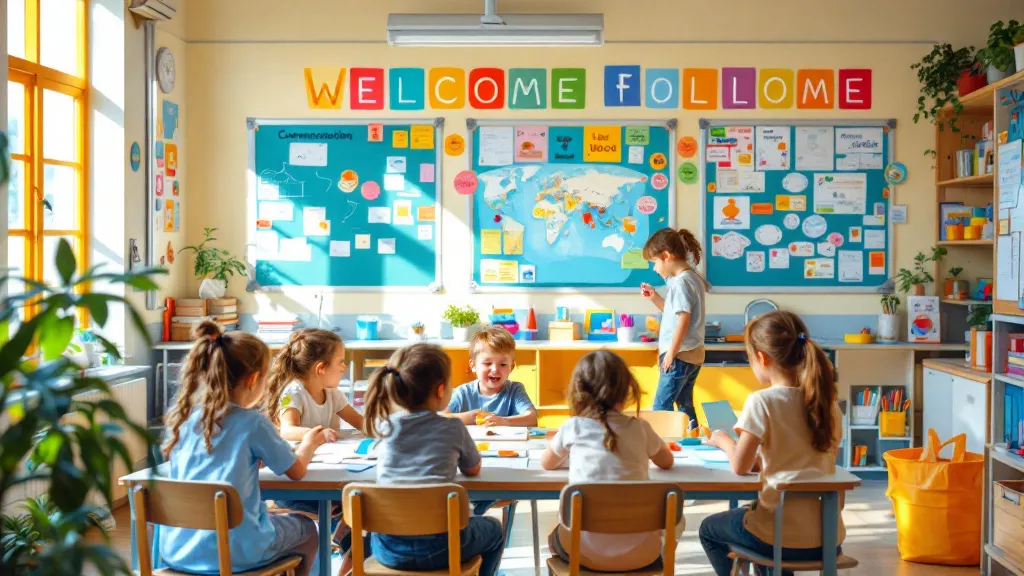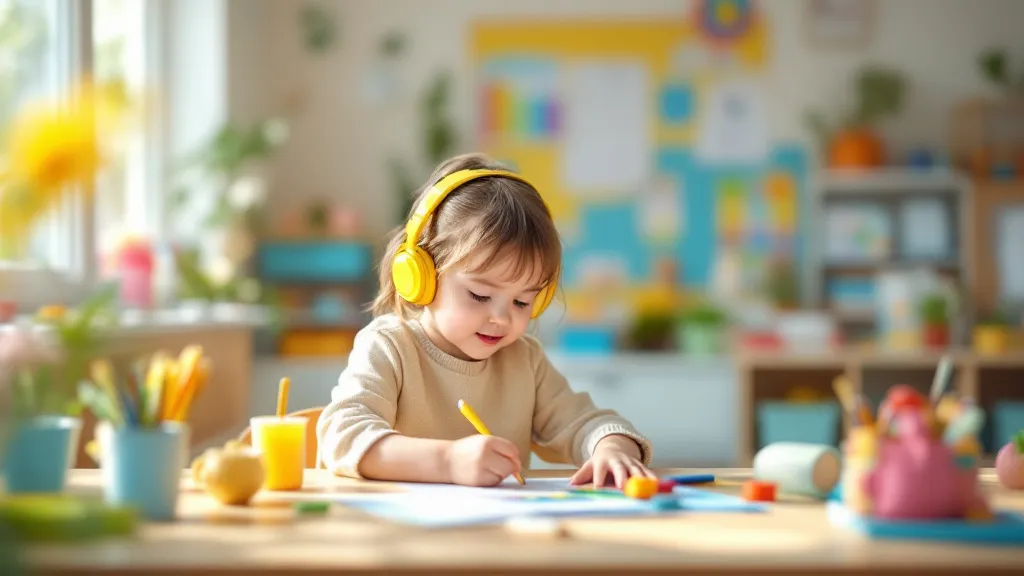The Importance of Teaching Personal Responsibility in ABA Therapy
Enhancing Independence and Growth through Personal Responsibility in ABA

Understanding the Critical Role of Personal Responsibility in ABA Therapy
Applied Behavior Analysis (ABA) is a scientifically validated approach that focuses on understanding and shaping human behavior. Central to its success is the emphasis on fostering personal responsibility—an essential component for developing independent, confident, and socially adaptive individuals. This article explores the significance of teaching personal responsibility within ABA therapy, examining strategies, benefits, and the profound impact on behavior and development across diverse settings.
The Significance of Teaching Personal Responsibility in ABA Therapy

Why is teaching personal responsibility important in ABA therapy?
In ABA therapy, cultivating personal responsibility is vital because it lays the foundation for lifelong independence and self-management. It empowers individuals to recognize the impact of their actions, make informed choices, and stay accountable for their behaviors. These skills are especially crucial for children with autism or other developmental disorders, as they help facilitate smoother integration into social, educational, and community environments.
How do ABA techniques promote accountability?
ABA employs strategies like positive reinforcement, task analysis, and naturalistic teaching to instill a sense of ownership over behaviors. For example, reinforcement systems reward individuals for completing tasks independently, which encourages continued effort and accountability. Breaking down complex tasks into smaller, manageable steps through task analysis helps individuals understand their role in achieving goals. Additionally, natural environment training involves practicing skills in real-life settings, promoting genuine understanding and personal ownership.
What is the role of individual ownership in therapy outcomes?
When individuals take ownership of their progress, therapy outcomes are significantly enhanced. Personal responsibility motivates consistent effort, leading to faster acquisition of skills such as self-care, communication, and social interaction. Moreover, fostering this sense of ownership encourages individuals to apply learned skills across various settings, supporting generalization and independence.
Additional insights
Teaching personal responsibility aligns with the broader goals of ABA, which include promoting behaviors that lead to meaningful, functional lives. It helps build confidence, encourages proactive behavior, and supports long-term growth.
| Aspect | Benefits | How ABA Supports It |
|---|---|---|
| Self-management | Increased independence | Reinforcement, visual cues, and routines |
| Accountability | Better social interactions | Clear expectations, reinforcement for responsibility |
| Lifelong skills | Confidence and self-esteem | Natural environment training, role-playing |
Overall, integrating personal responsibility within ABA strategies creates a balanced approach that fosters sustainable progress and resilience in individuals, empowering them to lead more autonomous lives.
How ABA Therapy Fosters Personal Responsibility
How does ABA therapy foster personal responsibility?
Applied Behavior Analysis (ABA) therapy plays a crucial role in helping individuals develop a sense of personal responsibility by focusing on the teaching and reinforcement of essential life skills. These skills include self-care routines like grooming and hygiene, effective communication, and executive functioning tasks such as organization and problem-solving.
ABA therapy relies on individualized, comprehensive assessments to identify specific needs and goals for each person. Based on these evaluations, tailored intervention plans are created, which guide the teaching process. These plans incorporate evidence-based strategies, such as positive reinforcement, to motivate learners and encourage the repetition of desirable behaviors.
A significant aspect of fostering responsibility involves promoting the generalization of skills across multiple settings—home, school, and community—so that individuals can consistently apply what they learn in daily life. Continuous data collection and progress monitoring ensure that interventions are effective and adapted as needed, supporting ongoing growth.
Involving families and caregivers is also vital. Through training and collaboration, they learn how to support and reinforce behaviors at home, creating a consistent environment that promotes accountability.
Self-monitoring strategies are integrated into ABA programs, empowering individuals to observe and track their own behaviors. This practice fosters self-awareness and encourages them to take ownership of their actions.
Overall, ABA systematically builds confidence and competence in managing daily routines, leading to increased independence. As individuals acquire and maintain new skills, they become more capable of managing their needs and routines, ultimately cultivating a strong sense of personal responsibility and autonomy.
Benefits of Incorporating Personal Responsibility into ABA Interventions

What are the benefits of incorporating personal responsibility into ABA interventions?
Integrating personal responsibility into ABA strategies offers numerous advantages that significantly impact an individual's development. One of the primary benefits is increased independence. When individuals actively participate in managing their behaviors through self-monitoring and goal setting, they gain a sense of control and ownership over their progress.
Self-awareness and self-control are further enhanced when individuals are encouraged to observe and reflect on their actions. This proactive involvement not only fosters personal growth but also builds motivation, as individuals become motivated by their own achievements and confidence.
Moreover, involving individuals in their learning process helps develop lifelong skills such as decision-making, problem-solving, and self-regulation. These abilities are vital for navigating daily challenges and social situations effectively.
Consistency across different environments is crucial for reinforcing learned behaviors. Personal responsibility encourages individuals to transfer skills learned in therapy to various settings, promoting generalization. This consistency ensures that positive behaviors are maintained and adapted over time, supporting sustained progress.
In summary, embedding personal responsibility into ABA interventions boosts independence, nurtures motivation and confidence, and ensures the generalization of skills across settings. These elements together contribute to more meaningful, lasting behavioral improvements, ultimately fostering greater autonomy and improved quality of life.
Strategies and Methods for Teaching Personal Responsibility in ABA

What strategies and methods are used in ABA to teach personal responsibility?
In ABA, helping individuals develop a sense of personal responsibility leverages a variety of structured techniques designed to foster independence, accountability, and self-management.
One core approach is self-monitoring, where individuals learn to observe and record their own behaviors, thoughts, or feelings. This promotes awareness and ownership of actions, encouraging consistent self-assessment.
Prompting is another essential strategy. Therapists gradually provide cues or assistance to guide correct behaviors, then systematically fade these prompts over time, allowing the individual to perform tasks independently.
Reinforcement systems are tailored to strengthen responsible behaviors. Positive reinforcement—such as praise, tokens, or preferred activities—encourages continued effort, while setting clear, achievable goals helps maintain motivation and focus.
To support self-management, visual supports like schedules, checklists, and timers are commonly used. Structured routines and environmental modifications create predictable contexts that reinforce responsibility in daily activities.
Data collection plays a vital role in customizing interventions. Behavior analysts continuously monitor progress through detailed records, which inform adjustments tailored to the individual’s evolving needs.
These strategies work together to teach various aspects of responsibility, including organization, emotional regulation, decision-making, and accountability. The ultimate goal is to empower individuals to independently carry out daily routines and make appropriate choices.
Applying these methods in both natural and structured environments helps generalize responsibility skills across settings, fostering confidence and lifelong independence.
The Impact of Teaching Personal Responsibility on Behavior and Development
What is the impact of teaching personal responsibility on behavior and development?
Teaching personal responsibility plays a vital role in shaping behavior and promoting overall development. When individuals learn to take ownership of their actions, they develop prosocial behaviors and social skills that foster healthier interactions. This process, often exemplified through frameworks like the Teaching Personal and Social Responsibility (TPSR) model used in youth sports and educational settings, encourages learners to become more autonomous and accountable.
Schools and programs that explicitly focus on responsibility provide students with opportunities to make meaningful choices in a supportive environment. These experiences boost motivation and enhance self-efficacy, empowering students to problem-solve, regulate their emotions, and develop leadership qualities.
Research highlights that integrating responsibility into various subjects and routines helps nurture resilience and a positive self-concept. This approach not only fosters immediate behavioral improvements but also supports long-term personal growth. For example, instilling responsibility helps learners handle setbacks more effectively and develop a proactive attitude.
Furthermore, fostering a sense of responsibility contributes to lifelong habits of independence and resilience. These qualities are instrumental in navigating complex social and personal challenges as individuals mature.
How does teaching responsibility influence social skills?
Teaching personal responsibility encourages development of essential social skills such as cooperation, empathy, and respectful communication. When individuals recognize the importance of their actions and their impact on others, they become more considerate and accountable.
Research indicates that responsibility training is particularly effective in creating positive peer interactions and reducing problematic behaviors. In environments where responsibility is emphasized, students often display greater readiness to collaborate and support each other.
What is the role of responsibility in fostering lifelong independence and resilience?
Learning responsibility lays the foundation for independence by helping individuals manage tasks, make decisions, and solve problems on their own. These skills are crucial for success in adult life, including careers, relationships, and community involvement.
Resilience is bolstered when individuals understand that they can influence outcomes through their choices. Responsibility training teaches them to learn from mistakes and persevere despite setbacks, cultivating emotional strength and adaptability.
How does responsibility contribute to self-efficacy and emotional growth?
Self-efficacy, or the belief in one's ability to succeed, is strengthened through responsible behaviors. When individuals experience the positive outcomes of their actions, their confidence increases.
Responsibility also promotes emotional growth by encouraging mindfulness, self-regulation, and reflection. When learners understand the importance of accountability, they tend to develop a healthier self-image and a sense of control over their lives.
Integrating responsibility in educational and developmental programs supports learners' overall well-being, equipping them with skills necessary for lifelong success and happiness.
| Subject Area | Benefits of Teaching Responsibility | Additional Details |
|---|---|---|
| Behavior & Social Skills | Promotes prosocial behaviors, conflict resolution, cooperation | Enhances peer relationships and reduces problematic behaviors |
| Lifelong Independence | Builds decision-making, problem-solving, self-management | Prepares for adult challenges and responsibilities |
| Self-Efficacy & Emotions | Increases confidence, emotional regulation, resilience | Fosters growth mindset and emotional stability |
| Educational Settings | Improves engagement, motivation, classroom climate | Integrates seamlessly with academic subjects |
The consistent application of responsibility teaching across various settings supports the development of well-rounded, autonomous individuals capable of contributing positively to society.
The Importance of Personal Responsibility in Early Childhood and Autism Treatment
Why is personal responsibility important in early childhood and autism treatment?
In the context of early childhood development and autism intervention, personal responsibility plays a vital role in fostering independence and building essential life skills. When children learn to take ownership of their behaviors and decisions, they become more capable of managing their emotions and social interactions effectively.
Implementing strategies such as positive reinforcement, visual supports, and teaching emotion regulation helps children understand the link between their actions and outcomes. For example, visual schedules and timers can guide children through daily routines, encouraging responsibility for completing tasks.
Parents and caregivers are integral to nurturing this sense of responsibility. Their involvement includes developing personalized plans, consistently reinforcing desired behaviors, and promoting skill generalization across different environments.
Supporting emotional and social skills through targeted interventions improves overall well-being and prepares children for more complex social situations later in life. Developing responsibility early on encourages children to participate actively in their own growth, leading to greater confidence and autonomy.
Overall, instilling personal responsibility sets a foundation for lifelong learning, self-management, and social integration. It is through this process that children on the autism spectrum can achieve meaningful progress, enhancing their quality of life and future independence.
Educational Value of Teaching Personal Responsibility in ABA

How does teaching personal responsibility add educational value in therapy?
Teaching personal responsibility through ABA significantly enriches the learning experience. It encourages individuals to become active participants in their development by fostering self-awareness and self-management skills. For example, children learn to identify their emotional triggers and recognize their behaviors, which helps them develop better control over their reactions.
By emphasizing individual accountability, therapy promotes independence. Individuals learn to reinforce their positive behaviors and develop strategies to handle challenges on their own, leading to increased confidence and autonomy. This shift from dependence to self-reliance is essential for lifelong growth.
In addition, caregivers and educators play a vital role. When they understand behavioral principles, they can provide consistent support across different settings. This consistency ensures that skills learned in therapy are applied at home, school, and community environments, leading to better generalization and maintenance of behaviors.
Using strategies like reinforcement and natural environment teaching, individuals are motivated to practice skills in real-life situations. This not only enhances learning but also makes it meaningful and practical. Teaching responsibility thus creates a foundation for lifelong habits of accountability, proactive behavior, and resilience.
Overall, integrating personal responsibility into ABA sessions adds educational value by turning skills into lifelong tools. It helps individuals internalize behaviors, promotes their independence, and supports continuous improvement across all facets of life.
The Role of Self-Monitoring and Behavioral Strategies in Promoting Responsibility
What role do self-monitoring and behavioral strategies play in promoting personal responsibility?
Self-monitoring and behavioral strategies are fundamental components of Applied Behavior Analysis (ABA) that help individuals develop a sense of accountability and control over their actions. These techniques enable people to observe, record, and assess their behaviors, fostering greater awareness of their actions and consequences. Through regular self-assessment, individuals learn to recognize progress and pinpoint areas needing improvement.
This process encourages independence by reducing reliance on external prompts and support. For example, a child learning to complete chores may use visual checklists to self-tracking, reinforcing their ability to complete tasks independently. Techniques like modeling and feedback further bolster self-regulation skills, allowing individuals to adjust behaviors proactively.
In practice, self-monitoring enhances executive functioning, which includes skills like planning, organization, and impulse control. It empowers learners to manage their behavior with confidence, supporting academic success, social interactions, and daily routines. Across different age groups, these strategies promote responsible decision-making, reduce disruptive behaviors, and help instill habits of accountability.
Overall, integrating self-monitoring and behavioral strategies within ABA addresses the development of autonomy and personal responsibility. These tools foster a proactive attitude toward managing one’s actions, leading to better self-control, motivation, and social competence. By encouraging ownership of behaviors, they play a vital role in lifelong skill-building and personal growth.
Integrating Personal Responsibility into Social-Emotional Learning Frameworks
How can personal responsibility be integrated into social-emotional learning frameworks?
Embedding personal responsibility into social-emotional learning (SEL) frameworks involves intentionally emphasizing the development of responsible decision-making and self-regulation skills within educational curricula. Using the Collaborative for Academic, Social, and Emotional Learning (CASEL) framework, teachers can facilitate responsible behaviors by nurturing key competencies such as self-awareness, self-management, and relationship skills.
Practical approaches include incorporating reflective activities that prompt students to consider the impact of their choices, encouraging peer collaboration to build accountability, and modeling responsible behavior through daily interactions. These strategies foster a classroom culture where personal responsibility is valued and practiced.
Furthermore, systemic efforts across entire schools—such as integrated lessons, school-wide policies, and community involvement—reinforce these values consistently. By explicitly and systematically embedding SEL practices into daily instruction, educators help students understand why their choices matter and how they can act ethically and empathetically in different situations.
Promoting personal responsibility through SEL not only enhances individual character but also prepares students to become responsible, compassionate members of society. Such integration offers a comprehensive approach to cultivating ethical decision-making and self-control from an early age, ultimately contributing to healthier, more resilient communities.
Overall Benefits of Teaching Personal Responsibility in Behavioral and Therapeutic Contexts

What are the overall benefits of teaching personal responsibility in behavioral and therapeutic contexts?
Teaching personal responsibility plays a vital role in behavioral and therapeutic settings. It helps individuals develop confidence in their abilities, fostering a sense of self-efficacy and independence. As individuals learn to take ownership of their actions, they become more motivated to make positive changes, which leads to lasting behavioral improvements.
One significant benefit is the enhancement of long-term behavioral change. When a person understands that their choices directly influence outcomes, they are more likely to adopt and maintain desirable behaviors. This sense of control encourages perseverance through challenges and reduces reliance on external prompts.
Moreover, focusing on responsibility supports social and emotional well-being. Individuals who are accountable for their actions tend to form healthier relationships, possess better problem-solving skills, and experience greater self-trust.
Integrating personal responsibility into therapy also promotes resilience. It equips individuals with the skills to manage setbacks constructively and adapt, which is essential for sustained mental health. This approach aligns with evidence-based practices like ABA, which emphasize skill generalization, self-monitoring, and positive reinforcement.
Ultimately, fostering personal responsibility empowers individuals to lead more independent and fulfilling lives. It establishes a foundation for ongoing growth, resilience, and improved societal functioning, illustrating how crucial responsibility is in both personal development and behavioral therapy.
Fostering a Culture of Responsibility for Lifelong Benefits
The integration of personal responsibility within ABA therapy is fundamental for nurturing individuals who are confident, autonomous, and prepared to navigate life's challenges. By employing a variety of evidence-based strategies—such as self-monitoring, reinforcement, visual supports, and collaborative goal-setting—therapists and caregivers can create enriching environments that promote accountability and independence. This holistic approach not only accelerates skill acquisition but also instills lifelong values of self-awareness, resilience, and social responsibility. Ultimately, emphasizing personal responsibility in ABA enriches therapy outcomes and empowers individuals to lead fulfilling, socially engaged lives.
References
- Understanding the Benefits of ABA: A Comprehensive Guide -
- Applied Behavior Analysis in Early Childhood Education
- The Importance of Caregiver Education in ABA
- What Role Do ABA Therapists Play? - Quality Behavior Solutions
- Ethical Implementation of ABA Programming in Schools: A Guide for ...
- What is Applied Behavior Analysis?
- How ABA Therapy Helps with Daily Living Skills
- Importance of ABA Therapy in Early Childhood Development
- 5 Interactive ABA Activities That Teach Independent Living Skills
- A Practical Guide to Behavior Success - Mastering Self Monitor ABA ...
Does Your Child Have An Autism Diagnosis?
Learn More About How ABA Therapy Can Help
Find More Articles
Contact us
North Carolina, Nevada, Utah, Virginia
New Hampshire, Maine
Arizona, Colorado, Georgia, New Mexico, Oklahoma, Texas
.avif)


































































































